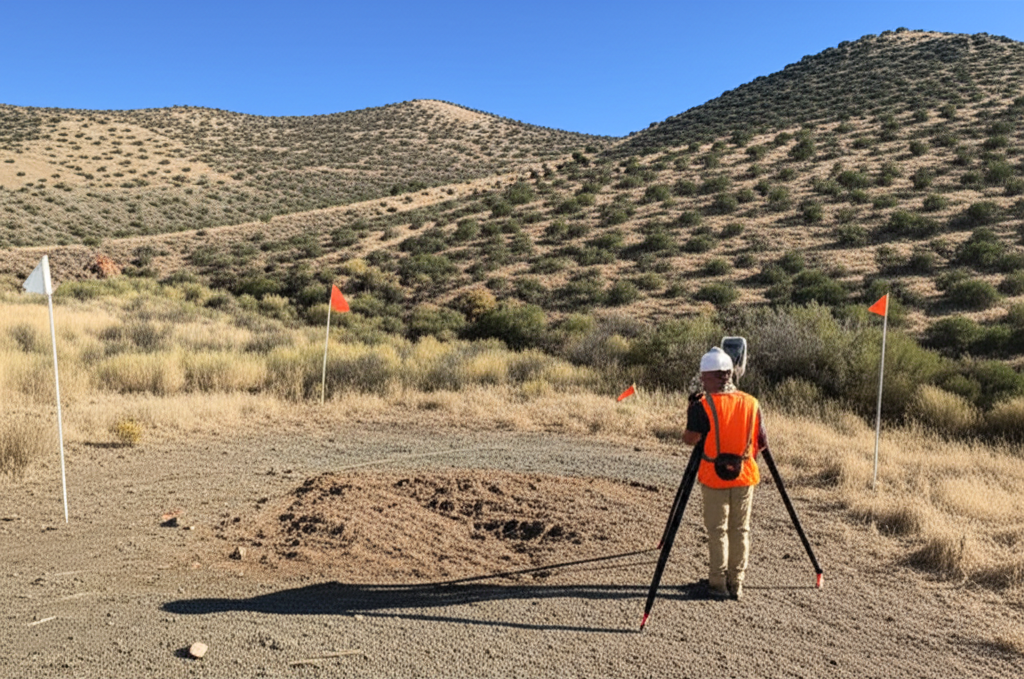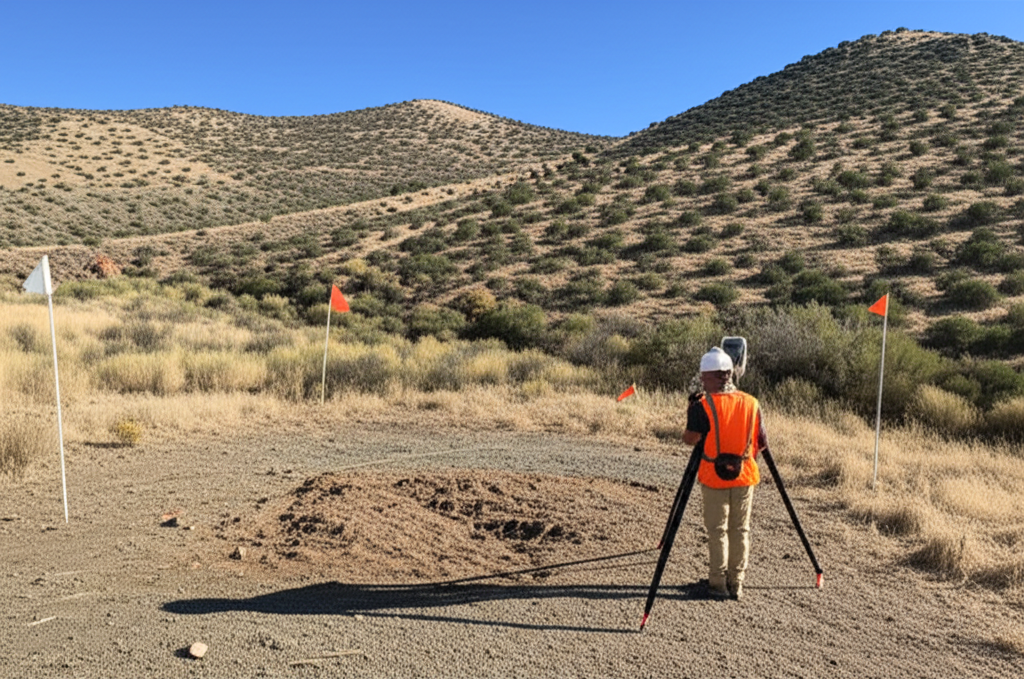eBay Gold Claims: Are They Legit?
eBay has become a surprising hotspot for mining claim sales. But are they real? Are they legal? And what should you watch out for? We analyze real sold listings and seller reputations.

In recent years, eBay has emerged as a surprisingly active marketplace for gold mining claims. A quick search reveals dozens of listings across the western United States, with prices ranging from a few hundred dollars to tens of thousands. But for prospective claim buyers, this raises important questions: Are these eBay claims legitimate? What risks are involved? And how can you protect yourself when purchasing a claim through an online auction platform?
The Rise of eBay Mining Claim Sales
The trend of selling mining claims on eBay began gaining momentum around 2010 and has steadily increased since then. Several factors have contributed to this growth:
- Rising gold prices making mining claims more valuable and sought-after
- Increased interest in recreational gold prospecting and outdoor activities
- The platform's ability to reach a nationwide audience of potential buyers
- Relatively low fees compared to specialized claim brokers
- The ease of including photos, maps, and detailed descriptions
Can Mining Claims Legally Be Sold on eBay?
Yes, mining claims can legally be sold on eBay or any other marketplace. Mining claims are a form of real property interest that can be bought, sold, and transferred like many other property rights. The key legal requirements for transferring a mining claim are:
- A proper quitclaim deed or similar transfer document
- Recording the transfer with the appropriate county recorder's office
- Filing the transfer with the Bureau of Land Management (BLM) within 60 days
- Payment of applicable recording and filing fees
eBay simply serves as the meeting place for buyers and sellers—the actual legal transfer process happens outside the platform after the auction concludes.
Important Distinction
When you purchase a mining claim, you're buying the mineral rights to the land, not the land itself. The land typically remains federal property managed by the BLM or U.S. Forest Service. What you're acquiring is the exclusive right to extract and sell minerals found on that parcel.
Our Analysis of eBay Mining Claim Listings
To provide insight into the eBay mining claim market, we analyzed over 50 recent listings and sales from January to March 2025. Here's what we found:
Legitimacy Factors
BLM Serial Numbers
Approximately 70% of listings included valid BLM serial numbers that could be verified in the BLM's Land & Mineral Legacy Rehost System (LR2000). This is the single most important indicator of a legitimate claim.
Detailed Documentation
About 60% of listings included photos of claim documentation, including location notices, maintenance fee receipts, and county recording stamps.
Missing Information
Approximately 30% of listings lacked critical information such as precise claim locations, BLM serial numbers, or proof of current claim status.
Suspicious Listings
About 15% of listings showed red flags such as unusually low prices, vague locations, or claims of extraordinary gold recovery without documentation.

Price Analysis
Our analysis revealed significant price variations based on several factors:
- Location: Claims on well-known gold-bearing rivers like the Trinity, Klamath, and American commanded premium prices, typically $7,000-$15,000 for 20-acre claims.
- Documentation: Claims with thorough documentation and proven gold recovery sold for 30-50% more than similar claims with minimal documentation.
- Access: Claims with easy road access sold for significantly more than remote claims, even when the remote claims had better gold potential.
- Water: Claims with year-round water access commanded higher prices than seasonal claims.
The average price for a 20-acre placer claim on eBay during our study period was approximately $6,800, with a range from $1,200 to $18,500.
Red Flags to Watch For
Based on our analysis, here are the warning signs that an eBay mining claim listing might be problematic:
No BLM Serial Number
If the listing doesn't include a BLM serial number (e.g., CAMC123456), be extremely cautious. This number is essential for verifying the claim's existence and status.
Vague Location Information
Legitimate sellers should provide specific location details, including township, range, section, and meridian information. Vague descriptions like "near a famous gold area" are red flags.
Extraordinary Gold Recovery Claims
Be skeptical of listings claiming exceptional gold recovery without documentation or evidence. If it sounds too good to be true, it probably is.
Unusually Low Prices
While bargains do exist, claims priced significantly below market value (e.g., a Trinity River claim for $1,500 when similar claims sell for $10,000+) should raise suspicion.
New Seller with No Feedback
Be cautious when dealing with sellers who have recently created their accounts and have little or no feedback, especially for high-value claims.
Reluctance to Answer Questions
Legitimate sellers should be willing to answer reasonable questions about the claim. Evasiveness or refusal to provide basic information is concerning.
How to Safely Buy a Mining Claim on eBay
If you're considering purchasing a mining claim through eBay, follow these steps to protect yourself:
1. Verify the Claim Before Bidding
Use the BLM serial number to check the claim's status in the LR2000 database. Verify that:
- The claim is active and in good standing
- Annual maintenance fees are current
- The seller is the recorded owner
- There are no pending actions or disputes
2. Research the Seller
Check the seller's feedback history, focusing on:
- Previous mining claim sales and buyer satisfaction
- Length of time on eBay (longer is generally better)
- Overall feedback percentage and recent reviews
- Responsiveness to questions and communication style
3. Ask Detailed Questions
Don't hesitate to ask the seller for additional information:
- Request copies of claim documentation if not included in the listing
- Ask about access routes and seasonal accessibility
- Inquire about water availability and mining conditions
- Ask for more specific location information and GPS coordinates
4. Understand the Transfer Process
Before bidding, make sure you understand:
- How the seller plans to handle the legal transfer (quitclaim deed, etc.)
- Who will be responsible for filing fees and recording costs
- The timeline for completing the transfer
- What documentation you will receive
5. Use Secure Payment Methods
For higher-value claims, consider:
- Using an escrow service that specializes in real property transactions
- Making payment contingent on verification of transfer documents
- Avoiding wire transfers to unknown parties
- Using payment methods with buyer protection when possible
Success Stories and Cautionary Tales
Our research uncovered both positive and negative experiences with eBay mining claim purchases:
Success Story: Trinity River Claim
In February 2025, a buyer purchased a 20-acre claim on the Trinity River for $9,800. The seller provided complete documentation, including BLM serial number, maintenance receipts, and GPS coordinates. After verifying the claim's status, the buyer received a properly executed quitclaim deed and successfully recorded the transfer. Their first weekend on the claim yielded several grams of gold, and they reported being very satisfied with the purchase.
Cautionary Tale: Non-Existent Claim
In January 2025, a buyer paid $3,200 for what was advertised as a "rich gold claim" in Siskiyou County. The listing included vague location information and no BLM serial number. After payment, the seller provided coordinates that, upon verification, were not part of any registered mining claim. The buyer had to file a dispute through eBay and eventually received a refund, but lost valuable time and opportunity.
Conclusion: Can You Find Legitimate Claims on eBay?
Based on our analysis, the answer is yes—many legitimate mining claims are sold on eBay. However, the platform also attracts some questionable listings that require careful scrutiny. By following the verification steps outlined above and approaching listings with appropriate caution, you can successfully purchase a valid mining claim through eBay.
Remember that buying a mining claim is acquiring a real property interest that comes with both rights and responsibilities. Take the time to verify what you're purchasing, understand the transfer process, and protect yourself with proper documentation.
At California Gold Claims, we conduct extensive verification on all claims we list, providing a higher level of security than typical eBay transactions. However, we recognize that eBay offers a wider selection and sometimes unique opportunities for claim buyers willing to do their due diligence.
eBay Claim Verification Checklist
- Verify BLM serial number in LR2000 database
- Check seller's feedback history and rating
- Confirm claim boundaries and location
- Verify annual maintenance fees are current
- Request copies of claim documentation
- Understand the transfer process and timeline
Related Resources
- How to Verify a Mining Claim Before You Buy
Comprehensive guide to claim verification
- How to Buy a Gold Mining Claim
Step-by-step guide to purchasing a claim
- Gold Claim Buyer's Checklist
Downloadable checklist for claim evaluation
BLM Resources
- BLM Land Records
Official database for verifying mining claims
- BLM Mining Claims Guide
Official information on mining claim regulations
Browse Verified Claims
Skip the uncertainty of eBay and browse our selection of fully verified gold claims.
View Available ClaimsLooking for Verified Claims?
Browse our selection of fully verified gold claims with complete documentation and secure transfers.